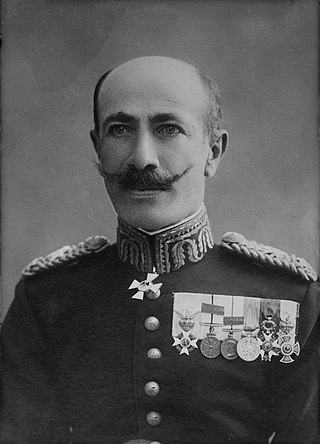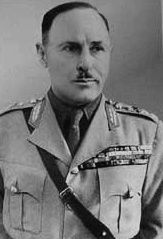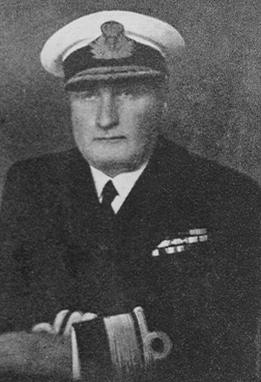Biography
He was the son of the military, politician and Army minister Charalambos Zymbrakakis (1812-1880). His elder brother was Emmanouil Zymvrakakis, who also became a Lieutenant General in World War I. Epameinondas enlisted as a volunteer in the army in 1882 and studied at the School of Non-Commissioned Officers, from which he left in 1888 as a second lieutenant. He was sent to France to complete his studies. During the Cretan Revolt (1897–1898), he participated as a volunteer.
In 1909 Epameinondas Zymbrakakis was one of the main inspirers and creators of the Goudi coup, as a member of the steering committee of the Military Association. Also in 1916, when the Provisional Government of National Defence was proclaimed in Thessaloniki by Eleftherios Venizelos, he was one of the first to support it. After Greece had joined the allies in 1917, he participated at the head of the Serres Division in all the military operations of the Entente, that took place in Macedonia.
He died in 1922 with the rank of Lieutenant General.

Nikolaos Plastiras was a Greek general and politician, who served twice as Prime Minister of Greece. A distinguished soldier known for his personal bravery, he became famous as "The Black Rider" during the Greco-Turkish War of 1919–1922, where he commanded the 5/42 Evzone Regiment. After the Greek defeat in the war, along with other Venizelist officers he launched the 11 September 1922 Revolution that deposed King Constantine I of Greece and his government. The military-led government ruled until January 1924, when power was handed over to an elected National Assembly, which later declared the Second Hellenic Republic. In the interwar period, Plastiras remained a devoted Venizelist and republican. Trying to avert the rise of the royalist People's Party and the restoration of the monarchy, he led two coup attempts in 1933 and 1935, both of which failed, forcing him to exile in France.

The Battle of Skra-di-Legen was a two-day battle which took place at the Skra fortified position, located northeast of Mount Paiko, which is north-west of Thessaloniki, on May 29–30, 1918, on the Macedonian front of World War I. The battle was the first large-scale employment on the front of Greek troops of the National Defense Army Corps, and resulted in the elimination of a whole enemy regiment and the capture of the heavily fortified Bulgarian positions.
The House of Levidis is a Greek aristocratic family with roots from the Byzantine Empire, hailing from Constantinople and with a distinguished role in the history of the Ottoman Empire, the Russian Empire, Wallachia, Egypt and Greece.

Emmanouil Zymvrakakis was a Hellenic Army officer who rose to the rank of lieutenant general, and was distinguished in World War I.

Viktor Dousmanis was a Hellenic Army officer, who rose to the rank of Lieutenant General. He distinguished himself as a staff officer during the Balkan Wars and became a leading monarchist during the National Schism, serving three terms as Chief of the Hellenic Army General Staff.

Konstantinos Nider was a Hellenic Army officer, who rose to the rank of lieutenant general and distinguished himself during the First World War and the subsequent Asia Minor Campaign.

Konstantinos Ventiris was a Hellenic Army officer who rose to the rank of lieutenant general. He served twice as Chief of the Hellenic Army General Staff and was one of the senior government commanders during the Greek Civil War. He is also one of the few recipients the country's highest wartime decoration, the Commander's Cross of the Cross of Valour.
Panagiotis Spiliotopoulos was a Hellenic Army officer who rose to the rank of Lieutenant General and held the post of Chief of the Hellenic Army General Staff in 1946–1947, during the first stages of the Greek Civil War. He also served briefly as Minister of National Defence, Minister for Northern Greece and Secretary General of the Hellenic Red Cross.

Georgios Katechakis was a Hellenic Army officer and politician. He distinguished himself with his participation in the Macedonian Struggle under the nom de guerre Kapetan Rouvas in 1904–1905. An ardent Venizelist, he participated in the Movement of National Defence. After his retirement from the army with the rank of Major General, he entered politics, being elected into the Greek Parliament and the Greek Senate. He also served three times as Minister for Military Affairs and as Governor-General for Thrace (1922–1923) and for Crete (1928–1930).

Epameinondas Kavvadias was a Greek admiral who served thrice as Chief of the Navy General Staff and led the Greek fleet in the first years of World War II.

Alexandros Kontoulis was a Greek military officer who rose to the rank of lieutenant general in the Hellenic Army. He was among the driving minds behind the Macedonian Struggle and was involved in the Albanian national movement, with the nom de guerre of Kapetan Skourtis. Kontoulis fought with distinction in the Greco-Turkish War of 1897 and the First Balkan War, where he was heavily wounded. In the Greco-Turkish War of 1919–1922, he commanded the I Army Corps on the southern sector of the Greek front from February 1921 to June 1922. After his retirement, he served as ambassador to Albania.
Alexandros Merentitis was a Hellenic Army officer who rose to the rank of Major General. He participated in all Greek wars of the early 20th century, served as effective Chief of the Hellenic Army General Staff in 1928–1929, General Secretary of the newly established Aviation Ministry in 1930–1934, and briefly as General-Governor of Northern Greece and Minister of Military Affairs in 1945.

Nikolaos Vlachopoulos was a Hellenic Army officer who rose to the rank of Lieutenant General. He participated in all the Greek wars of the early 20th century, and served twice as chief of the Hellenic Army General Staff, in 1922–24 and in 1927–28.
Panagiotis Demestichas was an officer of the Greek Army who rose to the rank of Lieutenant General, leading an army corps in the Greco-Italian War. He also briefly served as Minister of the Interior in the first collaborationist government under general Georgios Tsolakoglou during the Axis occupation of Greece.

Aristeidis Chasapidis was a Hellenic Army officer who reached the rank of lieutenant general and served as Chief of the Hellenic Army General Staff in 1935–36.
Georgios Panas was a senior Greek Navy officer who fought in the Balkan Wars of 1912–1913, World War I, and the Asia Minor Campaign, and served as Chief of the Hellenic Navy General Staff in 1928–31, and briefly minister in the Alexandros Othonaios emergency government in March 1933.
Epameinondas Charisiadis was a Greek revolutionary of the Northern Epirus movement, politician and doctor.

Achilleas Protosyngelos was a Hellenic Army officer who fought in the Balkan Wars, World War I, the Asia Minor Campaign, and reached the rank of lieutenant general.

Evangelos Koukoudeas was a Greek guerrilla fighter the Macedonian Struggle and the North Epirote Struggle for Autonomy, hero of the Balkan Wars, and officer of the First World War and Greco-Turkish War (1919–1922).

Nikolaos Rokas was a Greek soldier who participated in almost all Greek conflicts of the first half of the 20th century and ultimately rose to the rank of lieutenant general.














